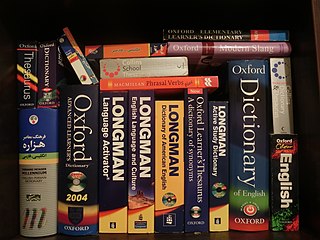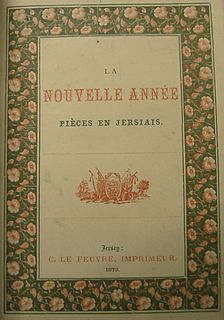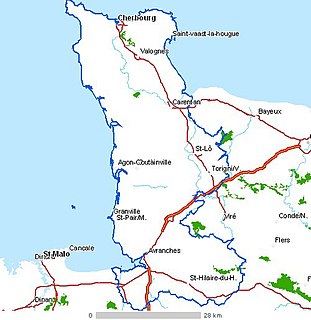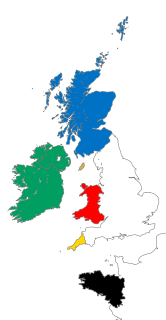
George Métivier (29 January 1790 – 23 March 1881) was a Guernsey poet dubbed the "Guernsey Burns", and sometimes considered the island's national poet. He wrote in Guernésiais, which is the indigenous language of the island. Among his poetical works are Rimes Guernesiaises published in 1831. Métivier blended together local place-names, bird and animal names, traditional sayings and orally transmitted fragments of medieval poetry to create themes.
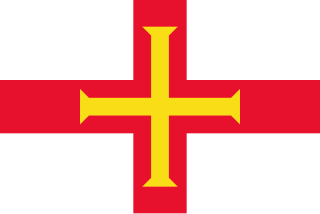
Guernsey is an island in the English Channel off the coast of Normandy. It lies roughly north of Saint-Malo and to the west of Jersey and the Cotentin Peninsula. With several smaller nearby islands, it forms a jurisdiction within the Bailiwick of Guernsey, a British Crown dependency. The jurisdiction is made up of ten parishes on the island of Guernsey, three other inhabited islands, and many small islets and rocks.
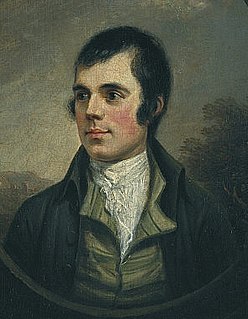
Robert Burns, also known as Robbie Burns, the Bard of Ayrshire, the Ploughman Poet and various other names and epithets, was a Scottish poet and lyricist. He is widely regarded as the national poet of Scotland and is celebrated worldwide. He is the best known of the poets who have written in the Scots language, although much of his writing is also in English and a light Scots dialect, accessible to an audience beyond Scotland. He also wrote in standard English, and in these writings his political or civil commentary is often at its bluntest.
Guernésiais, also known as Dgèrnésiais, Guernsey French, and Guernsey Norman French, is the variety of the Norman language spoken in Guernsey. It is sometimes known on the island simply as "patois". As one of the langues d'oïl, it has its roots in Latin, but has had strong influence from both Old Norse and English at different points in its history.
Contents
- Que l'lingo seit bouan ou mauvais / J'pâlron coum'nou pâlait autefais (whether the "lingo" be good or bad, I’m going to speak the way we spoke back then), wrote Métivier.
He was born in Rue de la Fontaine, St Peter Port, Guernsey, in the night of 28–29 January 1790. [1] He used the pen-name Un Câtelain, as his grandfather, a Huguenot by origin, had settled in Castel. As a young man, Métivier had studied in England and Scotland for a career in medicine, but had abandoned the idea of becoming a doctor to devote himself to linguistics and literature. His poems were published in Guernsey newspapers from 1813 until his death and since.
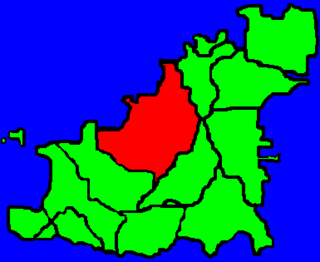
Castel is the largest parish in Guernsey in terms of area.

England is a country that is part of the United Kingdom. It shares land borders with Wales to the west and Scotland to the north-northwest. The Irish Sea lies west of England and the Celtic Sea lies to the southwest. England is separated from continental Europe by the North Sea to the east and the English Channel to the south. The country covers five-eighths of the island of Great Britain, which lies in the North Atlantic, and includes over 100 smaller islands, such as the Isles of Scilly and the Isle of Wight.

Scotland is a country that is part of the United Kingdom. Sharing a border with England to the southeast, Scotland is otherwise surrounded by the Atlantic Ocean to the north and west, by the North Sea to the northeast and by the Irish Sea to the south. In addition to the mainland, situated on the northern third of the island of Great Britain, Scotland has over 790 islands, including the Northern Isles and the Hebrides.
George Métivier corresponded publicly in verse form with Robert Pipon Marett ("Laelius"), the Jèrriais poet. He translated the Gospel according to Matthew into Guernésiais for publication by Prince Louis-Lucien Bonaparte, who visited him in 1862. [2] Métivier's close friend and protégé was Denys Corbet 1826-1909, born in Vale, Guernsey.

Sir Robert Pipon Marett was a lawyer, journalist, poet, politician, and Bailiff of Jersey from 1880 until his death.
Jèrriais is the form of the Norman language spoken in Jersey, one of the Channel Islands off the coast of France. It has been in decline over the past century as English has increasingly become the language of education, commerce and administration. There are very few people who speak Jèrriais as a mother tongue and, owing to the age of the remaining speakers, their numbers decrease annually. Despite this, efforts are being made to keep the language alive.

Denys Corbet was a Guernsey poet, naïve painter, and schoolmaster, the second son of Pierre Corbet, a seafarer, and Susanne. He was born at La Turquie, Vale, Guernsey, Channel Islands and is thought to have lost his parents in childhood. He married, probably in 1852, Mary "Elizabeth" Wellington (1833–1909) and had six children. Corbet wrote, for the most part, in the Dgèrnésiais or Guernsey French language.
